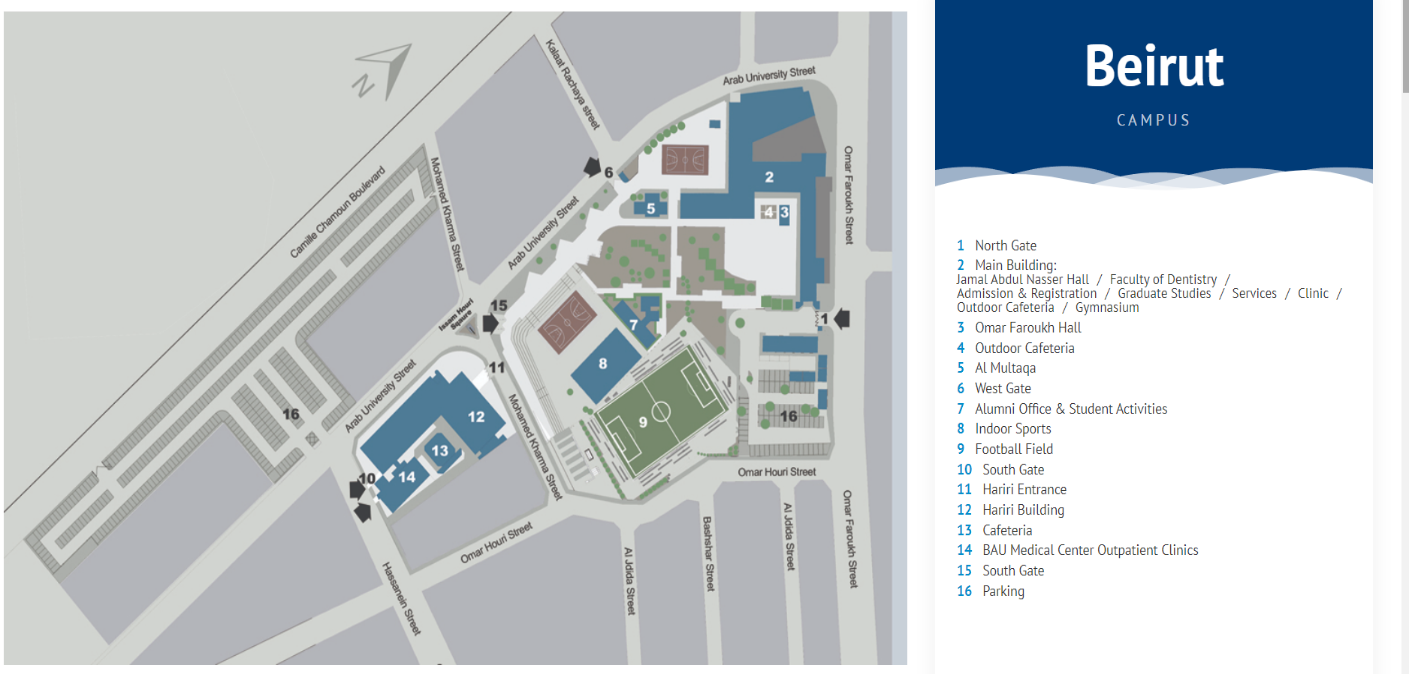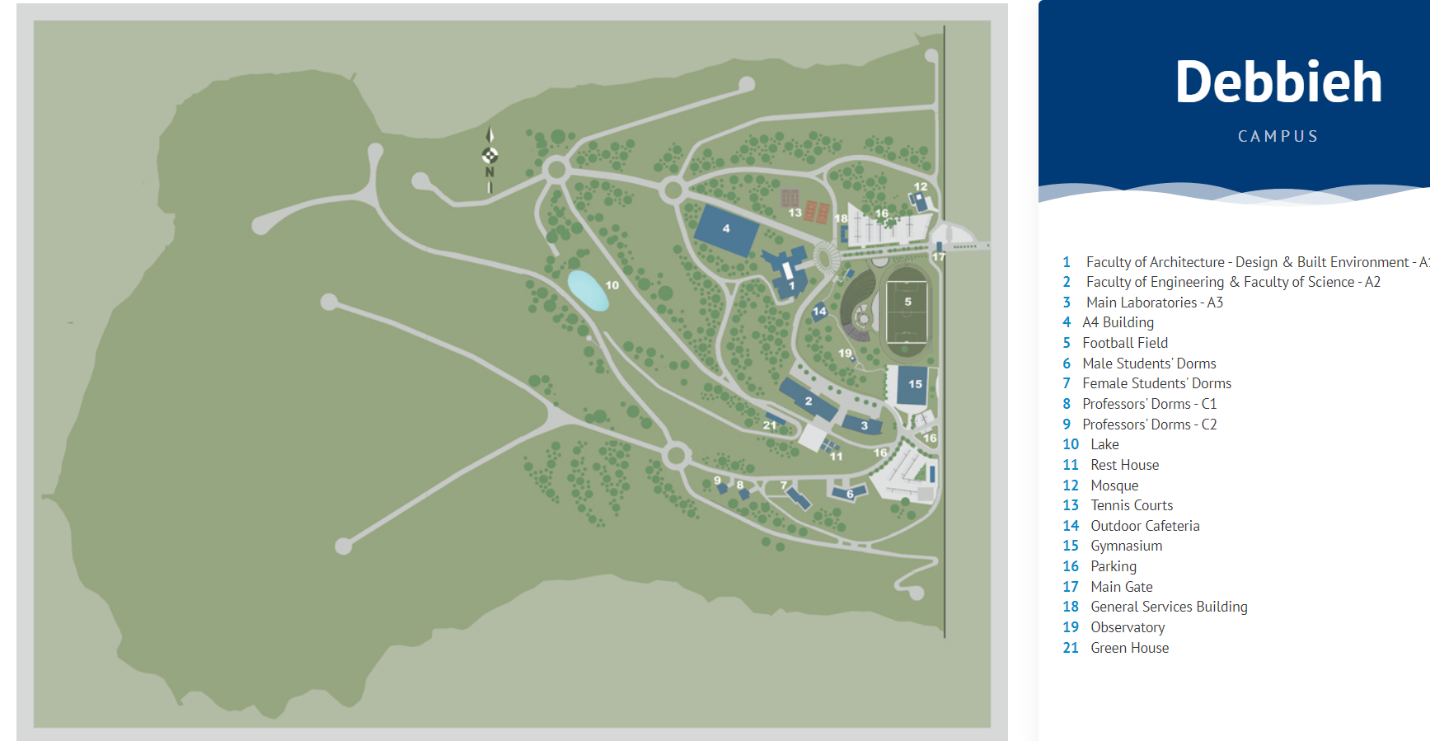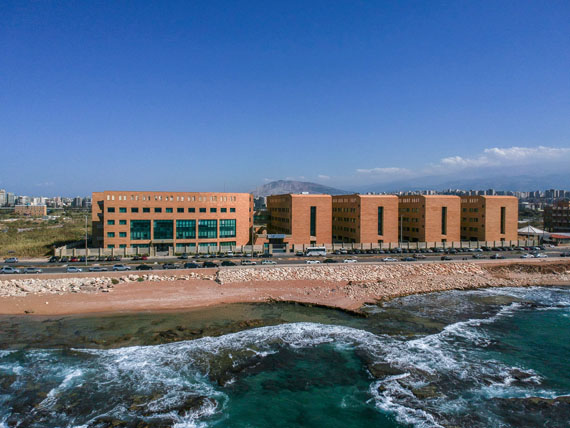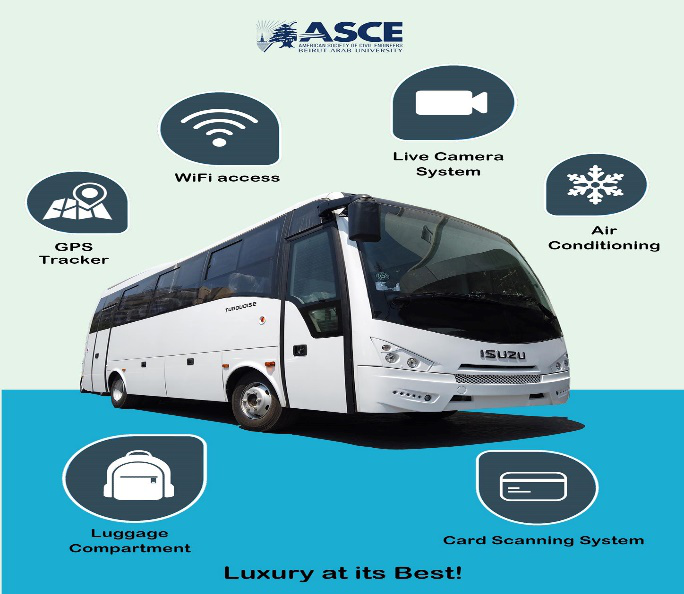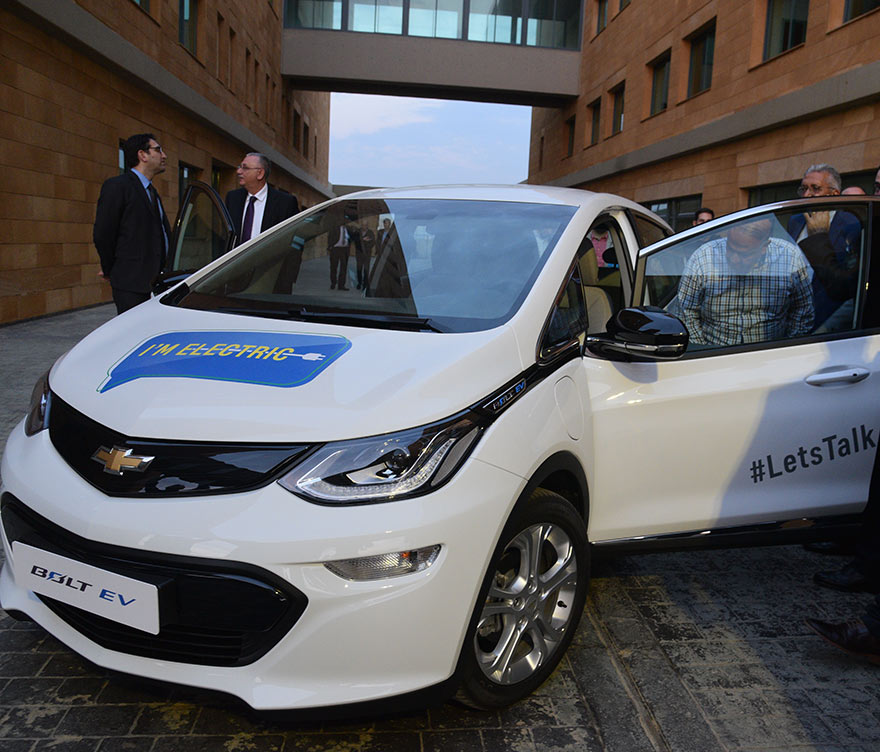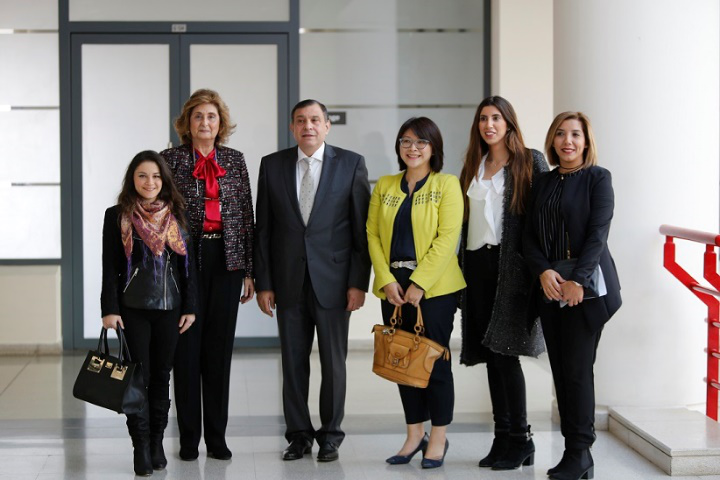Actions to promote the % of more sustainable commuting
With the purpose of promoting actions that help a more sustainable movement, the University has a parking area where vehicles can be housed without affecting mobility inside or outside the campus. Additionally, BAU has public transportation that takes students and staff members between different locations if necessary. The University carries out events that contribute to a more sustainable society of displacement, for example with the use of electronic vehicles. All of the above can be seen reflected below:
To maintain safety and convenience of our students, we have dedicated parking lots across our campuses. Parking areas are equipped with surveillance cameras. They are monitored by specialized parking lot staff.
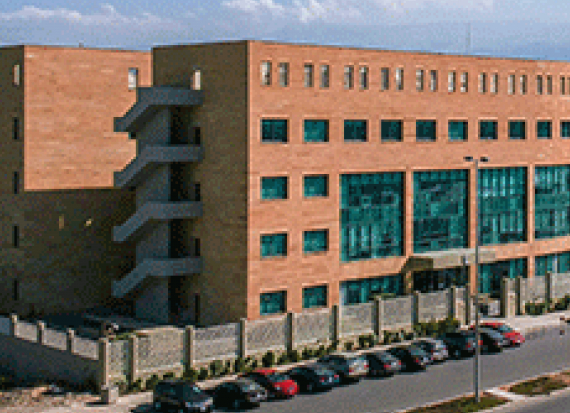
Beirut Campus has a public parking lot for students, staff, and visitors. Students can either pay daily or monthly fees for parking services. The parking lot has two entrances:
The main entrance facing Hariri Building opens from 6:00 AM till 12:00 AM.
The secondary entrance facing Camille Chamoun Road opens from 7:00 AM till 5:00 PM.
Overnight parking is allowed.
Debbieh Campus has dedicated four parking areas for its students, staff, and visitors inside campus. Students can either pay daily or monthly fees for parking services.
Parking areas are near faculty buildings and dorms. The parking in Debbieh opens from 6:00 AM till 12:00 AM. Overnight parking is allowed.
Tripoli Campus has no designated parking lot area for students. However, the vast area around the campus allows students to find a multitude of parking spots around the campus.
We like to make sure that our students arrive to BAU Debbieh Campus using public transportation without having to worry about traffic congestion, city driving, and parking issues.
Public transportation is an important part of the community and has the following advantages:
Increasing fuel efficiency and road mobility.
Reducing air pollution and traffic congestions.
Saving money.
Riding safely and equitably.
Transportation Services - Bus Features
GPS Tracker: Where you can easily track your bus's location.
Luggage Compartment: For all your university essentials, bags and luggage.
Live Camera System: Onboard security cameras to monitor bus activity.
Air Conditioning.
Wifi: Access BAU website, iConnect and WhatsApp.
Card scanning system: The choice to use semester ID, prepaid card, or cash payment.
Transportation Services - Fees and Information
Type of Service:
Semester transportation payment 400,000 L.L./semester.
Daily transportation payment 2,000 L.L. to 5,000 L.L. /ride.
Dorms outside campus: 2,000 L.L.
Khalde/Naame: 4,000 L.L.
Beirut/Saida: 5,000 L.L.
Transportation Services - Prepaid Card Rechargeable
The card can be refilled in the transportation office at Debbieh campus.
Students can charge from 5,000 to 100,000 L.L.
Card Benefits [5]:
49,000 L.L. and below gets 5% extra credit.
50,000 L.L. and above gets 10% extra credit.
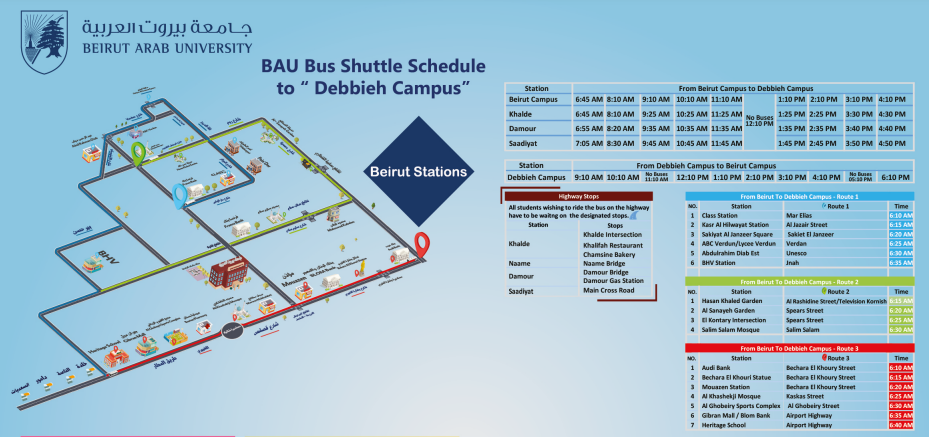
As countries around the globe are seeking environment-friendly means of transportation, the Faculty of Engineering at Beirut Arab University- Tripoli Campus organized a lecture entitled " Infrastructure and Design Adaptation for Electric Vehicles in North Lebanon ", highlighting the infrastructure requirements for electricity supplies and shipping stations in North Lebanon in preparation for the use of this type of transport in the region.
The lecture was attended by HE Mr. Najib Mikati represented by Engineer Bassem Khayat, HE Major General Ashraf Rifi represented by Mr. Kamal Ziadeh, President of the Order of Engineers and Architects in Tripoli Engineer Bassam Ziadeh, President of the Chamber of Commerce, Industry and Agriculture of Tripoli and North Lebanon represented by Mr. Fawaz Hamdi, Deans of the Faculties of Engineering at Madina University and the Lebanese Universities, Vice President for Tripoli Branch Professor Khaled Baghdady and a crowd of interested audience.
In his welcome speech, Professor Baghdady stressed the importance of the role of universities in keeping abreast of the rapid developments in all fields as well as providing scientific proposals and solutions to catch up with global development.
Engineer Ziadeh discussed the reasons behind the global tendency to use electric cars. He referred to the first steps taken by Lebanon to catch up with this development and presented the problems and challenges related to the provision of electricity infrastructure, maintaining that the field of electric cars will provide a new job market for engineers in various fields.
Dr. Shadi Nahra, Associate Professor at the Department of Electrical and Computer Engineering at BAU explained the most prominent international laws that guarantee the transition to using electric cars by 2025 when their prices are expected to be equal to fuel-powered vehicles. He also explained how electric cars work and the possibility of manufacturing them in Lebanon, addressing the potential technical challenges that might arise.
Under the patronage and presence of the Minister of Interior and Municipalities His Excellency Mr. Nouhad AL-Machnouk, the closing ceremony of “Inclusive and Sustainable Cities: Municipalities Good Practices in Lebanon” was held on the 27th of January 2022 at BAU - Faculty of Architecture- Design and Built Environment at Debbieh Campus.
This project is a joint initiative between UNESCO, UN-Habitat and Beirut Arab University, and it aims to showcase the good practices and most fruitful experiences from the participants’ municipalities of the Lebanese cities and communities.
The event was attended by BAU president, Prof. Amr Galal El-Adawi, UNESCO Director - Regional Bureau for Education in the Arab States Mr. Hamed Alhamami presented by Dr. Seiko Sugita, and UN-Habitat Country Program Manager Mr. Tarek Osseiran presented by Mrs. Lady Habshy, as well as the participating municipalities. The Dean of the Faculty of Architecture, Prof. Ibtihal El-Bastwassi highlighted that this initiative aims to improve knowledge sharing among cities in a matter which enhances co-existence and highly advocates experience sharing of each city’s capacity building, sustainable development and social cohesion.
The event included the distribution of certificates to 25 Good Practices, highlighted on 10 Good practices within a film documentary prepared by BAU, as well as an exhibition showcasing these good practices.
